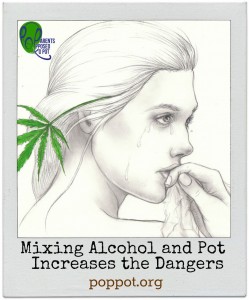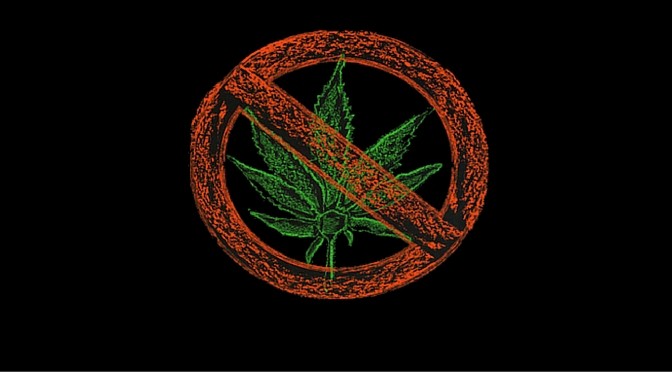Pro-pot advocates tell us their cannabinoids in breast milk which is true, but that’s not a reason to smoke pot while pregnant. In fact, Arizona just passed a law requiring all medical marijuana dispensaries to warn pregnant and breastfeeding women against using marijuana. Pamela McColl wrote an article on pregnancy and marijuana.
A blog from October, 2012 that discusses the subject. The author lives in the region which produces the most marijuana in the US. We’re reprinting this from the Mama Birth website, with permission:
Can you smoke marijuana while breastfeeding? Well- of course you can.
Should you smoke marijuana while breastfeeding? That is a very different question and one which is hotly debated. I am familiar with the raging feelings concerning smoking marijuana while pregnant and this subject also brings out strong emotions.
For some people smoking marijuana ever is a no brainer- why would you do that? It’s illegal anyway. For others, smoking weed is a part of their lifestyle and is considered a medicinal herb rather than a drug. No matter how you view marijuana and no matter it’s place in your lifestyle, it is worth carefully considering if it’s use should continue during pregnancy and breastfeeding.
The research on this subject is not vast. A true scientific study would require two large groups of breastfeeding mothers, half randomly assigned to smoking marijuana while breastfeeding, and half assigned to not smoke while breastfeeding. Of course, as drugs.com states, this type of study is considered unethical:
“Data are from random breastmilk screening rather than controlled studies because of ethical considerations in administering marijuana to nursing mothers”
So, to research this subject we must look at smaller studies and glean what we can from them and make the best choice. What does the limited research show? The following quotes are taken from an article in the Journal of Toxicology, April 2009. Please take the time to read the study and the resources it quotes if you are seriously interested in this subject.
Decreased motor development-
” The active substance of cannabis is the delta 9 TetraHydroCannabinol (THC). Some studies conclude that it could decrease motor development of the child at one year of age.”
THC is stored in the infant’s fat tissues for long periods of time-
“Its half-life is 1 to 2.3 days, and traces can persist for up to 4 to 6 weeks. It is rapidly distributed to the brain and adipose tissue. It is stored in fat tissues for long periods (weeks to months) [7].”
While studies are limited we do know some of the effects of some of the components of marijuana and it is known that marijuana can cause oral motor weakness which can cause problems with milk production. A baby that doesn’t suck well will fail to cause the mother’s adequate milk production.-
“Indeed, during foetal life, the cannabinoid CB1 receptor acts on brain development, regulating neural progenitor differentiation into neurones and glia (as CB2 receptor) and guiding axonal migration and synaptogenesis. Postnatally, CB1 receptor blockade induces oral motor weakness, which reveals a critical role for CB1 receptors in the initiation of milk suckling by neonates [8]”
It is also known that marijuana may impact brain development-
“Cannabinoids are also involved in the expression of key genes for neural development [11].”
Smoking weed is known to cause poor feeding patterns in humans.
“Cannabis causes sedation, weakness, and poor feeding patterns in adult [7]”
THC is known to pass through breast milk-
“THC is excreted into human breast milk in moderate amounts [19]. In one feeding, the infant would ingest 0.8% of the weight-adjusted maternal intake of one joint [20]. The ratio milk-to-plasma rates 8 in heavy users [19].”
Animal studies again indicate that milk production can be negatively impacted by marijuana use and Dr Hale agrees.
” Indeed, studies in animals suggest that marijuana could inhibit lactation by inhibiting prolactin production and, possibly, by a direct action on the mammary glands [7]. Hale reports a positive evidence of risk on milk production. Nevertheless, there are no human data to corroborate these observations.”
Marijuana use by a breastfeeding mother is known to cause lethargy in the infant among other things.
“According to Hale, marijuana could produce sedation and growth delay in infant [7], and a study by Liston have demonstrated that infants exposed to marijuana via breast milk show signs of sedation, reduced muscular tonus, and poor sucking [21].”
While it is unethical to conduct studies on humans, we do known that the compounds present in marijuana can alter DNA and brain growth.
” Animal studies have demonstrated alteration of DNA and RNA synthesis, and proteins needed for proper growth and development impaired in brain cells of newborn animals [21].”
While we don’t know a lot about how smoking marijuana while breastfeeding impacts the baby, the fact that no long term studies have been done does not mean there are no long term effects.
A study has also indicated that marijuana use can raise the chance of SIDS or sudden infant death syndrome.
” But paternal marijuana use during the periods of conception, pregnancy, and postnatally was significantly associated with SIDS [26].”
In addition to the known passage of marijuana through breast milk and it’s known storage in fatty tissues, it is mentioned that the mind altering effects of smoking marijuana are not recommended for anybody who is a primary care provider for an infant.
“Marijuana should not be used by nursing mothers because it may impair their judgment and child care abilities. Marijuana should not be smoked by anyone in the vicinity of infants because the infants may be exposed by inhaling the smoke. Some evidence indicates that paternal marijuana use increases the risk of sudden infant death syndrome in breastfed infants.”
So, in summary-
The use of marijuana during breastfeeding is not recommended for many reasons. It is known to pass through the breast milk. It is known to be stored in fatty tissue for a long period of time. It is known to impact DNA and RNA. Babies whose mother’s smoked weed tended to be more lethargic and this could impact milk supply and the ability to actively suck and extract milk. Smoking marijuana while breastfeeding is even thought to increase SIDS rates.
I live in an area where the use of marijuana is widespread, common, and legally accepted. I realize that many people believe that this substance has healing properties and has only been criminalized by those who are out for money or otherwise inclined to oppress farmers and hippies.
I realize that research on this subject is spotty at best and has small sample sizes and insufficient data. I strongly believe that just because something has not been proven dangerous does not mean it has been proven SAFE.
I strongly believe that it is our responsibility as a mothers and care providers to do what is best for our children. I also believe that we can sacrifice some of our old habits and lifestyles for our children. In fact I know that every good mother does this for her children. There are simply some things in our lives that need to be changed in order to be the best mother we can be to our babies.
For some of this it is patterns in our life, work, relationships, even hobbies. For most of us it means less sleep for a certain length of time, giving up our bodies briefly and some of our freedoms. For some of us it even means sacrificing some lifestyle choices and even drug (or medicinal herbal) use.
I can guarantee you that the sacrifices we make for our children will be well worth it and will not be regretted. I know that what can seem like a long and hard sacrifice for our children will look so short in a few years when we look back.
Life changes when we have babies and it changes forever. That is OK. In fact, it is a beautiful part of motherhood.
Let go of some of the sleep. Find different ways to deal with stress. (Nature has designed breastfeeding perfectly so that the very act of nursing relaxes both mother and baby and produces love hormones.)
Enjoy some of the natural drugs that your own body creates during the amazing journey of breastfeeding and set aside some of the others that we have to ingest. It will be such a short time in the long run and it will be so worth it- even to avoid a hypothetical risk.
For more information, consult this study.






